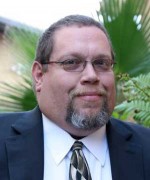Pride Month celebrates our accomplishments, but an East Texas funeral service reminds us that we have a long way to go
 RAFAEL McDONNELL | Special Contributor
RAFAEL McDONNELL | Special Contributor
This is national Gay Pride Month. In the 40-plus years since 1969 and the Stonewall Rebellion, there have been significant changes for lesbian, gay, bisexual and transgender people, and it’s important to celebrate our accomplishments.
Take a look at what has happened in the last year:
The federal government took the first steps toward repealing the “don’t ask, don’t tell” policy which bans open military service by gays and lesbians. Federal officials also unveiled new guidelines on how hospitals should deal with LGBT patients and their families.
Closer to home, DFW International Airport and Dallas County added policies to protect their LGBT employees from employment discrimination, and Dallas ISD adopted a comprehensive anti-bullying policy that protects all students regardless of sexual orientation, gender identity or gender expression.
I’m happy to say Resource Center Dallas played key roles in these local accomplishments.
In addition, public attitudes are changing. A Gallup poll released last month shows more than half the people surveyed now find gay and lesbian relationships, in the words of the survey, “morally acceptable.” The poll also showed half the people surveyed support marriage equality; up from 26 percent in 1996.
Much of this growth is attributed to people under the age of 35, and a change of attitude among men.
With all of these positive developments, we could become complacent. We could think the heavy work is done. At times, I’ve allowed myself to fall into this self-congratulatory trap.
Then I hear a story, as I did over Memorial Day weekend, which jars me back to the reality that our lives are precarious. It reminded me that there are far too many hearts and souls whose attitudes toward us have not changed.
At a funeral for a gay acquaintance of mine in East Texas, the minister delivered an anti-gay message from the pulpit, as did a relative of the deceased. In fact, the relative said he did not accept his brother’s sexual orientation in life, and wouldn’t in death.
Think about that for a minute. Can you imagine what the LGBT friends of the deceased must have felt, hearing those words in that setting?
This happened in 2011, a short drive from Dallas/Fort Worth. It stunned me, and reminded me of several recent events that together show the path for full inclusion remains bumpy.
When a state representative tries to eliminate funding for LGBT resource centers on Texas public college campuses, we have a long way to go. When a state senator attempts to restrict the rights of transgender Texans to marry, we have a long way to go.
When criminals target people because of their real or perceived sexual orientation, gender identity or gender expression, we have a long way to go. When LGBT people can still be fired from their jobs because of who they are or who they love, we have a long way to go.
When there are laws labeling our relationships and partnerships as less than legal and equal, we have a long way to go. When LGBT seniors face discrimination in long-term care facilities, we have a long way to go.
When we are treated unequally under federal programs like Social Security and Medicaid, we have a long way to go.
This is not meant to be a bucket of cold water on a festive, celebratory time. We’ve shown over and over again in the years since Stonewall that we have created communities, forged alliances and literally moved mountains to affect positive change for the LGBT community. We’ve rallied over the people we’ve lost and the temporary setbacks dropped in our path by lawmakers.
Rather, I think we should use Pride Month as an opportunity to look forward as well as back. Our pride in being who we are, regardless of sexual orientation, gender identity or gender expression, isn’t limited to 30 days every year, or a parade in the early fall. It’s pride in how we live our lives and how we work to fulfill the promise of equality for those who come after us.
Remember, this promise of equality is — for us — only a theoretical promise. To achieve equality, much more needs to be done, and each one of us must play a part.
Rafael McDonnell is strategic communications and programs manager for Resource Center Dallas and a former broadcast journalist. Email him at rmcdonnell@rcdallas.org.











